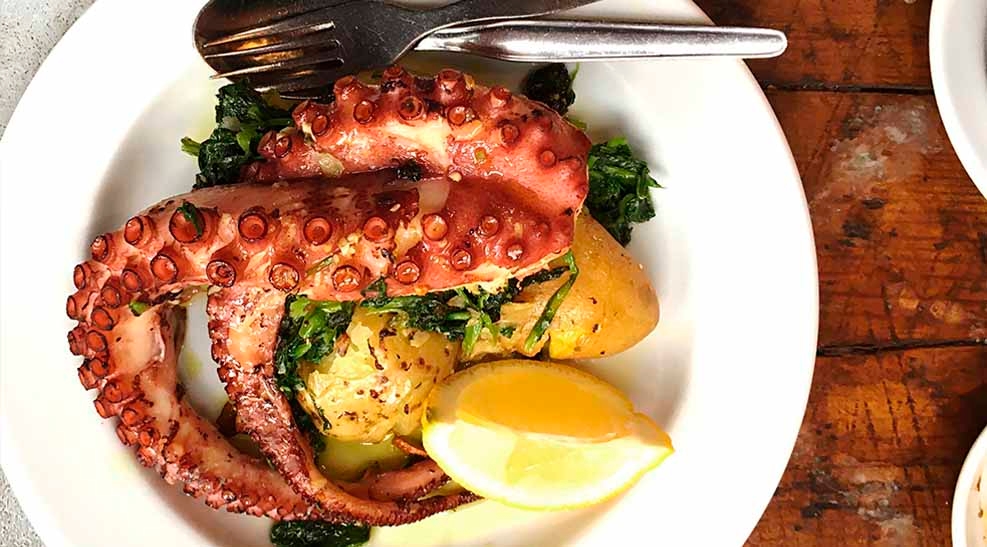
Polvo à Lagareiro : the roasted octopus in olive oil that melts Portugal (and you too)
If there’s one dish that perfectly sums up the generosity and simplicity of Portuguese cuisine, it’s Polvo à Lagareiro ! This roasted octopus drenched in olive oil, served with crispy potatoes and perfumed with garlic, is like a bit of Portuguese sunshine on a plate. It’s that dish everyone loves : the one you order “just to taste”… and then refuse to share.
A bit of history (promise, not boring)
The word Lagareiro comes from lagar, meaning “olive oil mill”. In other words, a Lagareiro is someone who works with olive oil and that’s exactly the star ingredient of this recipe. It’s a traditional dish from the center and north of Portugal, especially from the regions of Beira and Minho, where octopus is cooked with respect and patience.
The key to success : cooking (and patience)
Let me warn you right away ! The secret to Polvo à Lagareiro is making the octopus perfectly tender, without turning it into rubber (we’ve all been there, let’s be honest).
And for that, there are two schools of thought :
- The traditional method : cook the octopus in unsalted water with a whole onion or a cork (yes, a real wine cork, the Portuguese swear it tenderizes the flesh, and honestly… it works).
- The modern method : some steam it first, or use a steam oven, to prevent it from drying out.
Once tender, place it in an oven dish, drizzle generously with olive oil, add garlic, bay leaf, and roasted potatoes. And then… magic. It browns, it sizzles, it smells divine suddenly, your home feels like a Sunday by the sea.
The recipe (the “I want to make it at home” version)
Ingredients for 4 people :
- 1 octopus, about 1.5 to 2 kg
- 1 onion (unpeeled)
- 5 to 6 garlic cloves
- 1 bay leaf
- 800 g of small potatoes
- Lots (really lots) of olive oil
- Fleur de sel and black pepper
- A bit of fresh parsley (for the final touch)
Preparation :
- Cook the octopus in a large pot of unsalted water with the onion and bay leaf for about 40 to 50 minutes, until tender (check with a fork).
- Drain and let it cool slightly.
- Meanwhile, roast the small potatoes (unpeeled) in the oven at 200°C until golden and soft.
- Place the octopus and potatoes in a large baking dish, add the crushed garlic cloves, season with salt and pepper, and drizzle generously with olive oil (really, don’t be shy).
- Bake at 180°C for 20 to 25 minutes, until everything is golden and crispy around the edges.
Serve immediately with a squeeze of lemon or a sprinkle of chopped parsley (simply delicious !)
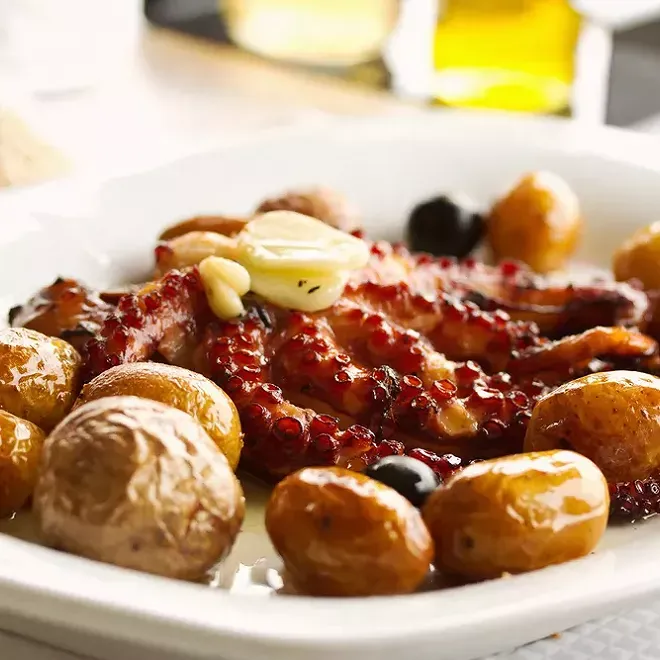
©cuisineaz
Chef’s tips (and every Portuguese grandma’s too)
- Never salt the cooking water, it makes the octopus tough !
- If you buy fresh octopus, freeze it overnight before cooking : the ice breaks down the fibers and makes it more tender.
- Use a good Portuguese olive oil (from the Douro or Alentejo regions) it’s the true hero of the dish.
- And to go with it ? A glass of fresh Vinho Verde or a Douro white : simple, effective, just perfect !
Ready to try Polvo à Lagareiro at home ?
Here’s a tip : grab some good bread for dipping (it’s scientifically impossible to resist the roasted olive oil at the bottom of the dish). And if you close your eyes, between the aroma of garlic and the scent of grilled octopus… you’ll almost feel the ocean breeze.
Share this article
Suggested articles
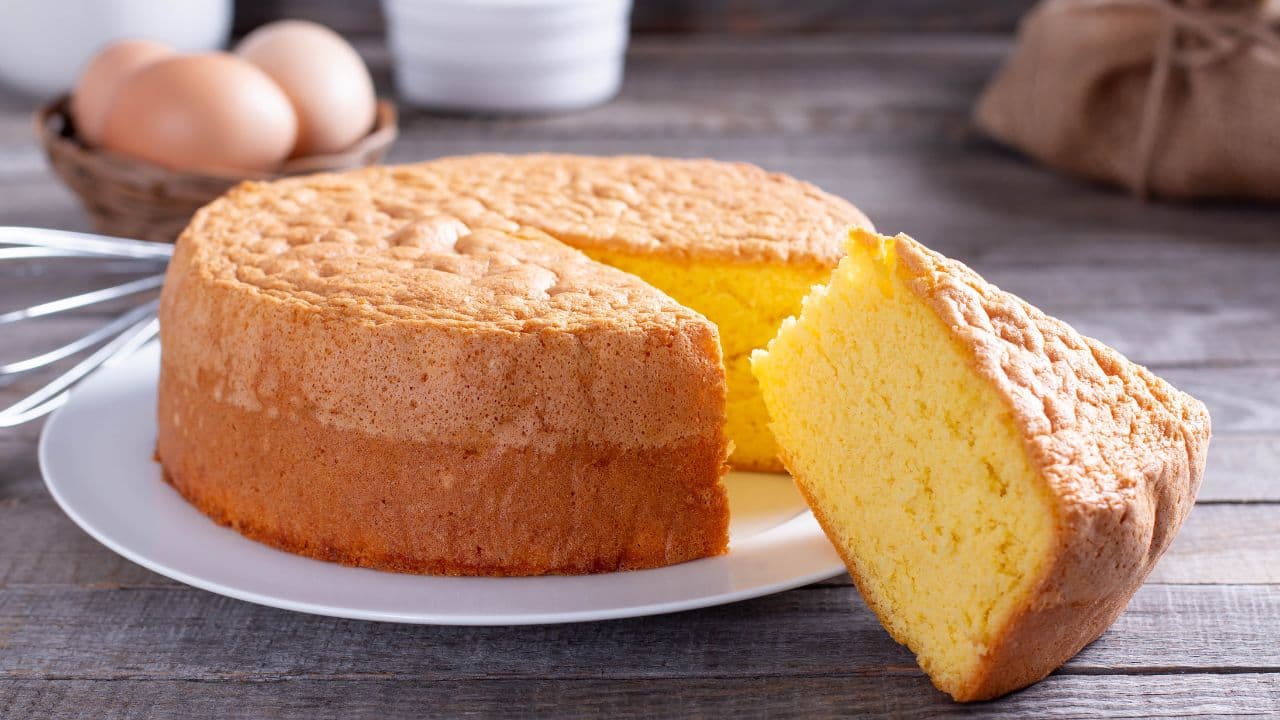
Pão de Ló
In every Portuguese family, there’s a cake that comes out of the oven like a little sun: the pão de ló. Golden, airy, soft, it always announces something joyful. It’s the cake of dressed-up Sundays, overfilled tables, and aunts who hug you too tightly while saying how much you’ve grown.
.jpg&w=3840&q=75)
Pastéis de Bacalhau
There are dishes that smell like holidays and grandma’s kitchen. Pastéis de bacalhau are exactly that. These little golden cod croquettes, crispy on the outside and soft on the inside, are at once an appetiser, a madeleine of Proust, and proof that Portugal has completely mastered the art of frying.
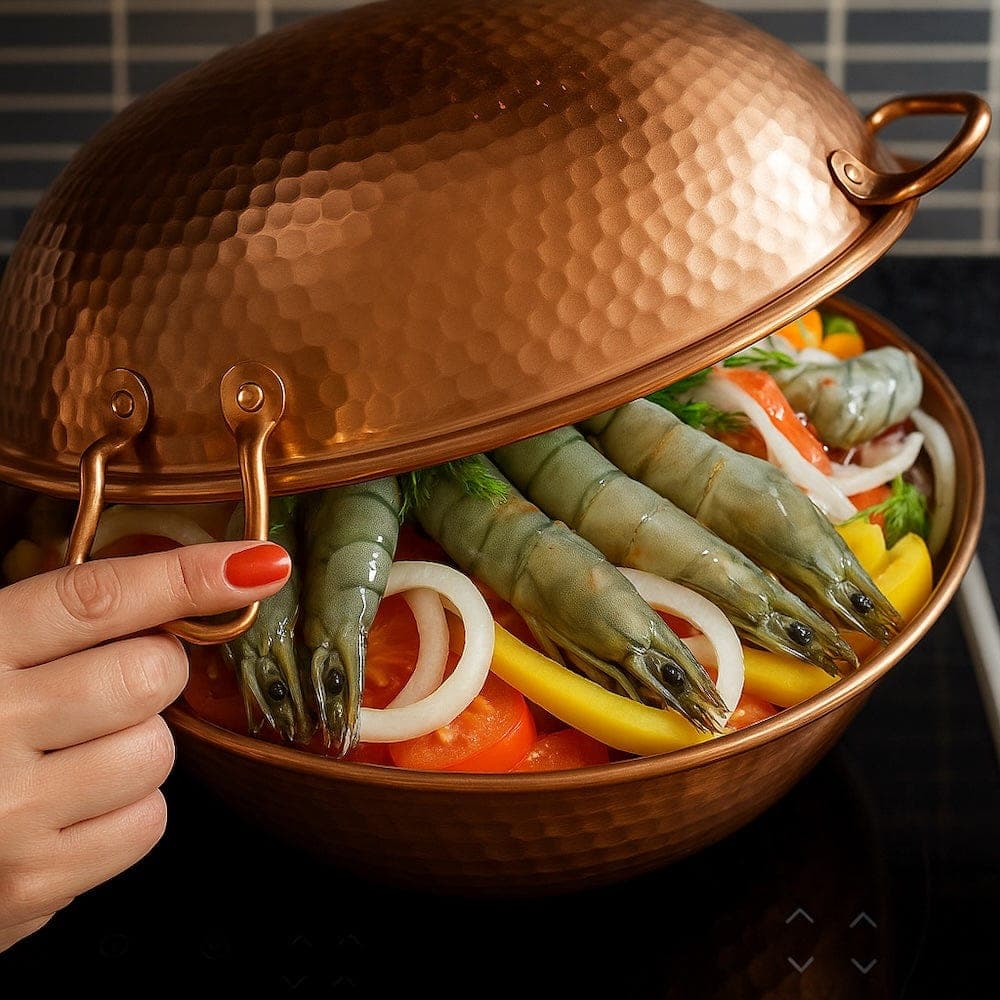
How to make a fish cataplana at home ?
I don’t know about you, but for me, just hearing the word cataplana already brings to mind the sound of the lid lifting, the steam escaping, and that blend of garlic, white wine and sea air filling the kitchen. A Portuguese dish full of sunshine, humour and conviviality, but also (let’s admit it) a little technical challenge when you want to reproduce it at home ! (unless, of course, you’ve had a bit of practice !)
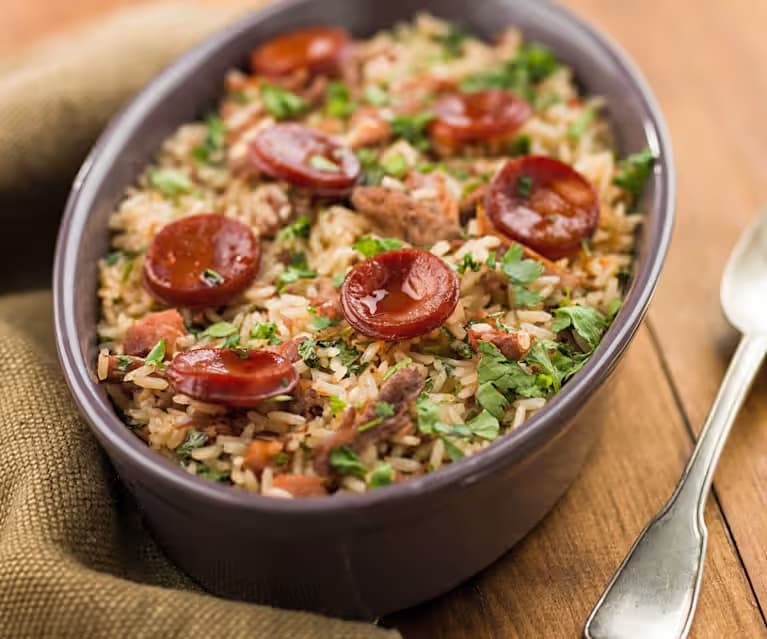
The secret of arroz de pato (duck rice)
Ah, arroz de pato… Just thinking about it makes me hungry ! This dish is the very definition of Portuguese comfort food, the kind that fills the house with rich aromas, warms the heart, and makes you forget bad weather (and sometimes even family arguments, yes really !).
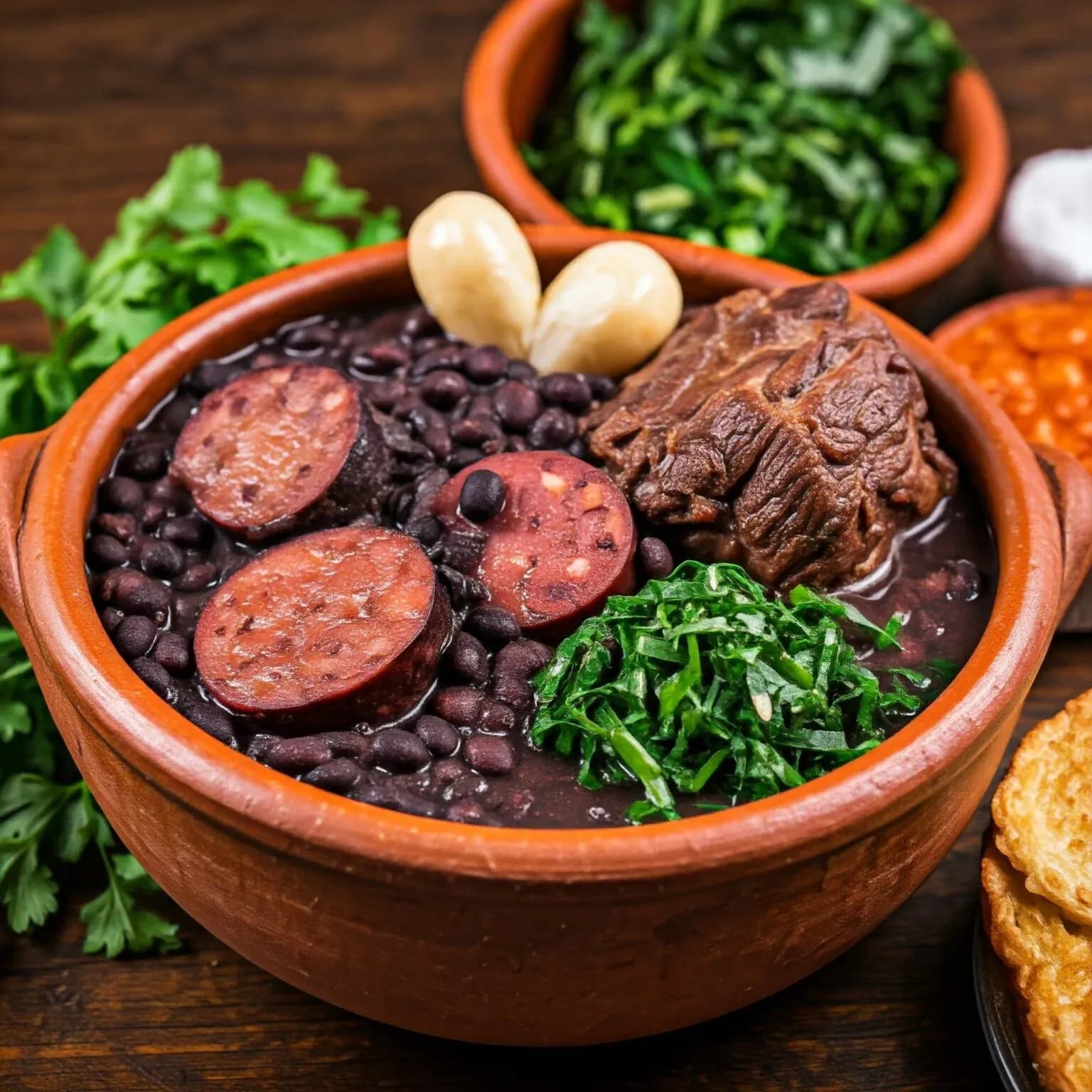
Feijoada à Portuguesa : THE ultimate Sunday family dish
If you’re looking for a meal that brings everyone together from the kids dragging their feet to the table to the grandparents checking their watches, look no further : Feijoada à Portuguesa is the secret weapon ! This hearty stew of beans cooked with a mix of meats, smoked sausages, and a touch of greens is the very definition of generous Portuguese cooking, “put everything on the table and help yourself.”
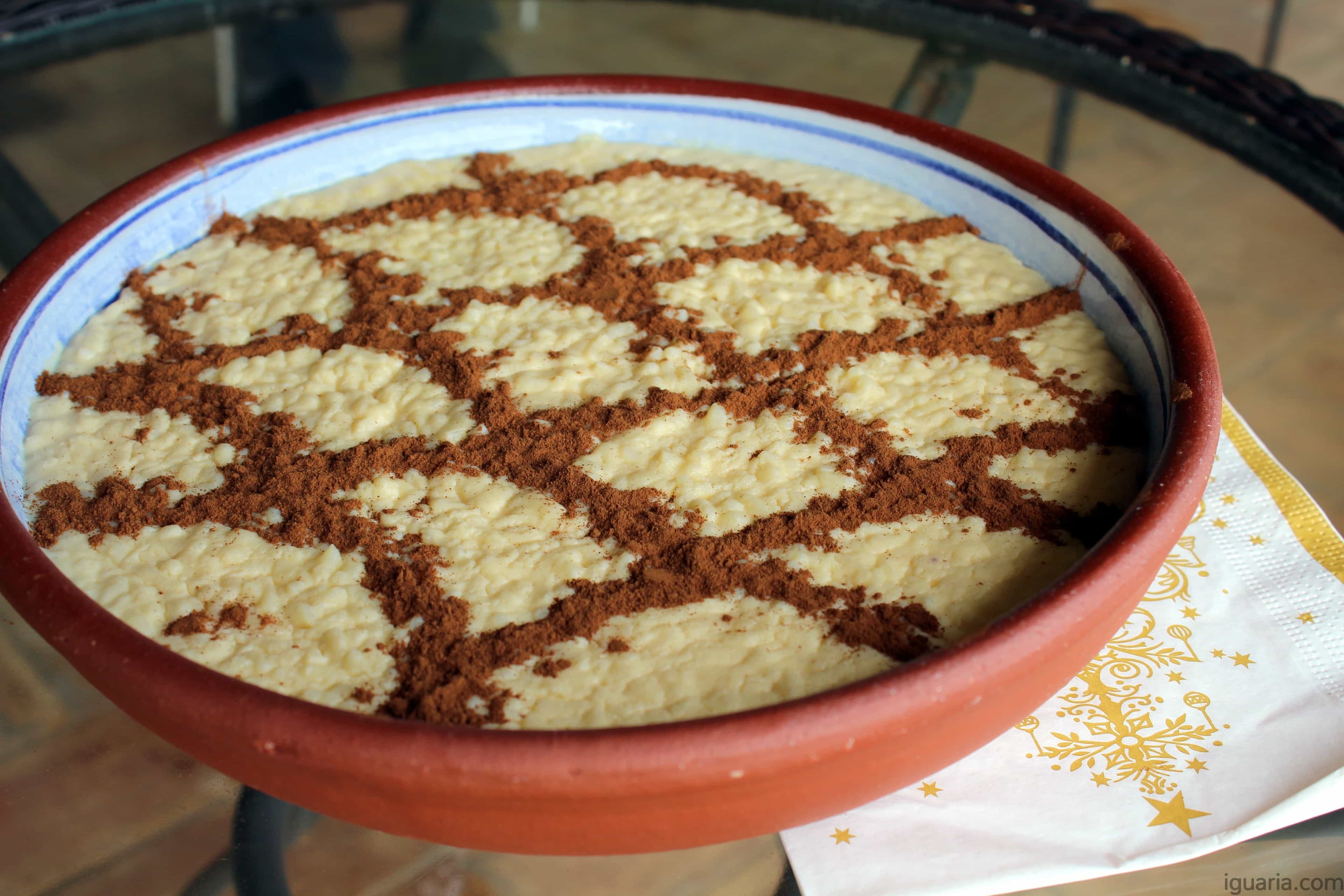
Arroz Doce : the cinnamon-kissed rice pudding that warms Portugal
This dessert may look simple and it is… but it’s exactly that simplicity that makes it so special. Arroz Doce, literally “sweet rice,” is a true institution of Portuguese cuisine : rice gently cooked in milk, infused with lemon zest and cinnamon, served during big celebrations or on a quiet winter Sunday when you just need a bit of comfort.


